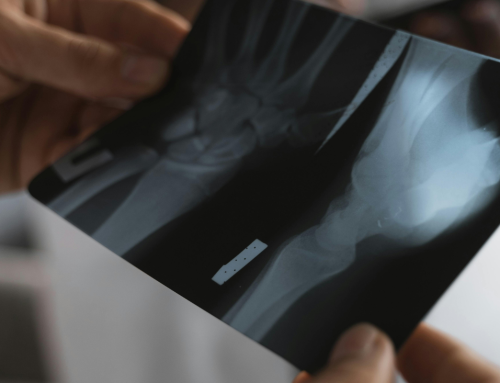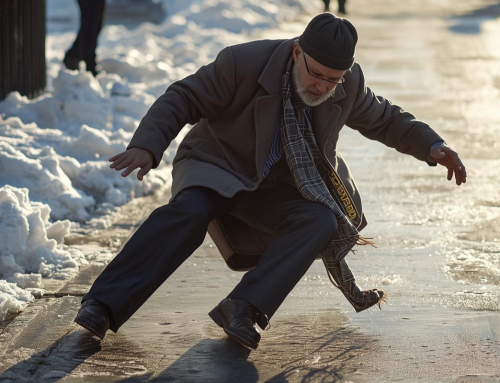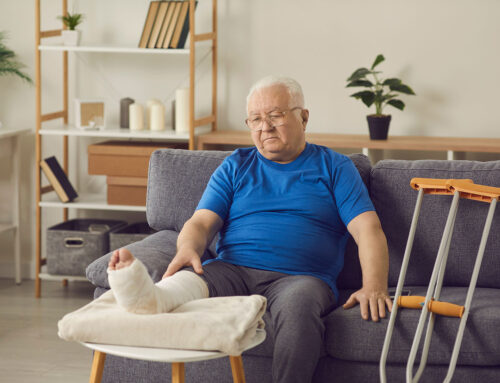Fractures can be a significant setback, affecting mobility and overall quality of life. While many fractures heal within the expected timeframe, some may linger, causing prolonged pain and discomfort. Understanding why your fracture isn’t healing and knowing what steps to take can accelerate your recovery. This blog explores the top 10 reasons fractures fail to heal properly and offers practical solutions to address these issues.

1. Insufficient Nutrition
The Role of Nutrition in Bone Healing
Proper nutrition is vital for bone health and healing. Essential nutrients such as calcium, vitamin D, protein, and magnesium play a crucial role in repairing fractured bones. A deficiency in these nutrients can significantly slow down the healing process.
Improving Your Diet
Incorporate foods rich in these essential nutrients to promote bone healing: dairy products, leafy greens, fish, nuts, seeds, and fortified foods are excellent choices. Consider consulting a nutritionist to ensure your diet supports optimal bone health.
2. Poor Blood Supply
Importance of Blood Flow
A healthy blood supply is crucial for fracture healing as it delivers essential nutrients and oxygen to the affected area. Poor circulation can impede this process, leading to delayed healing.
Enhancing Circulation
To improve blood flow, engage in gentle exercises that promote circulation without straining the fracture. Elevating the injured limb and avoiding smoking, which constricts blood vessels, can also help.
3. Infection
Impact of Infection
An infection at the fracture site can significantly hinder the healing process. Symptoms of infection include increased pain, swelling, redness, and fever.
Preventing and Treating Infection
Prevent infections by keeping the fracture site clean and following your doctor’s instructions meticulously. If an infection occurs, seek medical attention promptly. Antibiotics and other treatments can effectively manage infections and get your healing back on track.
4. Inadequate Immobilization
Need for Stability
Proper immobilization ensures that the fractured bones remain in place during healing. Inadequate stabilization can cause movement at the fracture site, preventing proper healing.
Ensuring Proper Immobilization
Follow your healthcare provider's advice on splints, casts, or braces. Regular check-ups are essential to ensure that the immobilization device functions correctly and provides the necessary support. Even if you’re feeling less pain, listening to your healthcare provider about immobilization recommendations is important.
5. Underlying Health Conditions
Chronic Conditions
Conditions such as diabetes, osteoporosis, and rheumatoid arthritis can affect the body's ability to heal fractures. They may also interfere with nutrient absorption, blood flow, and overall bone health.
Managing Health Conditions
Work with your healthcare provider to manage any underlying health conditions effectively. Proper management can improve your overall health and support the fracture healing process.
6. Medication Interference
Impact of Certain Medications
Some medications, such as corticosteroids, can impede bone healing by affecting bone density and overall health.
Consulting Your Doctor
Discuss your medication regimen with your doctor to understand its impact on bone healing. Your doctor may adjust your medications or suggest alternatives that are less likely to interfere with the healing process.
7. Insufficient Rest
Importance of Rest
Rest is critical for fracture healing. Insufficient rest can place unnecessary stress on the fracture site, delaying the healing process.
Prioritizing Rest
Ensure you get adequate rest and avoid activities that strain the affected area. Follow your healthcare provider's recommendations on activity levels and gradually reintroduce physical activities as the fracture heals.
8. Age Factors
Age and Healing
As we age, the body's ability to repair and regenerate tissues, including bone, decreases. Older adults may experience slower fracture healing due to reduced bone density and other age-related factors.
Supporting Healing in Older Adults
Older adults should focus on maintaining a balanced diet, staying active within safe limits, and managing chronic conditions. Regular check-ups with a healthcare provider can also help monitor and support the healing process.
9. Smoking and Alcohol Use
Negative Impact of Smoking and Alcohol
Smoking and excessive alcohol consumption can severely affect bone health. Smoking reduces blood flow, while alcohol interferes with calcium absorption and bone formation.
Making Healthier Choices
Quitting smoking and reducing alcohol intake can significantly improve bone health and accelerate fracture healing. Seek support from healthcare providers or support groups if needed.
10. Lack of Appropriate Medical Intervention
Importance of Professional Care
Timely and appropriate medical intervention is crucial for proper fracture healing. Delayed or inadequate treatment can lead to complications and prolonged healing times.
Seeking Medical Advice
Always seek prompt medical attention for fractures and follow your healthcare provider's recommendations. Regular follow-ups are essential to monitor healing progress and address any issues that arise.
Understanding the factors impeding fracture healing is the first step toward effective recovery. Addressing these issues and making informed choices can enhance the healing process and allow you to return to your daily activities sooner.
For those seeking an innovative solution to support fracture healing, consider the benefits of Low-Intensity Pulsed Ultrasound (LIPUS) technology. The Melmak LIPUS device is a convenient, 20-minute, once-per-day treatment that has been shown to accelerate the healing of fresh, delayed, and non-union fractures. With proven results over 20 years and no known side effects, the Melmak LIPUS device allows you to take control of your healing in the comfort of your home. Contact us to invest in your health and expedite your recovery with the Melmak LIPUS device, helping you return to your active lifestyle faster.
How long did it take for your last fracture to heal? What surprised you about the healing process? Share your experience with our readers in the comments below.





